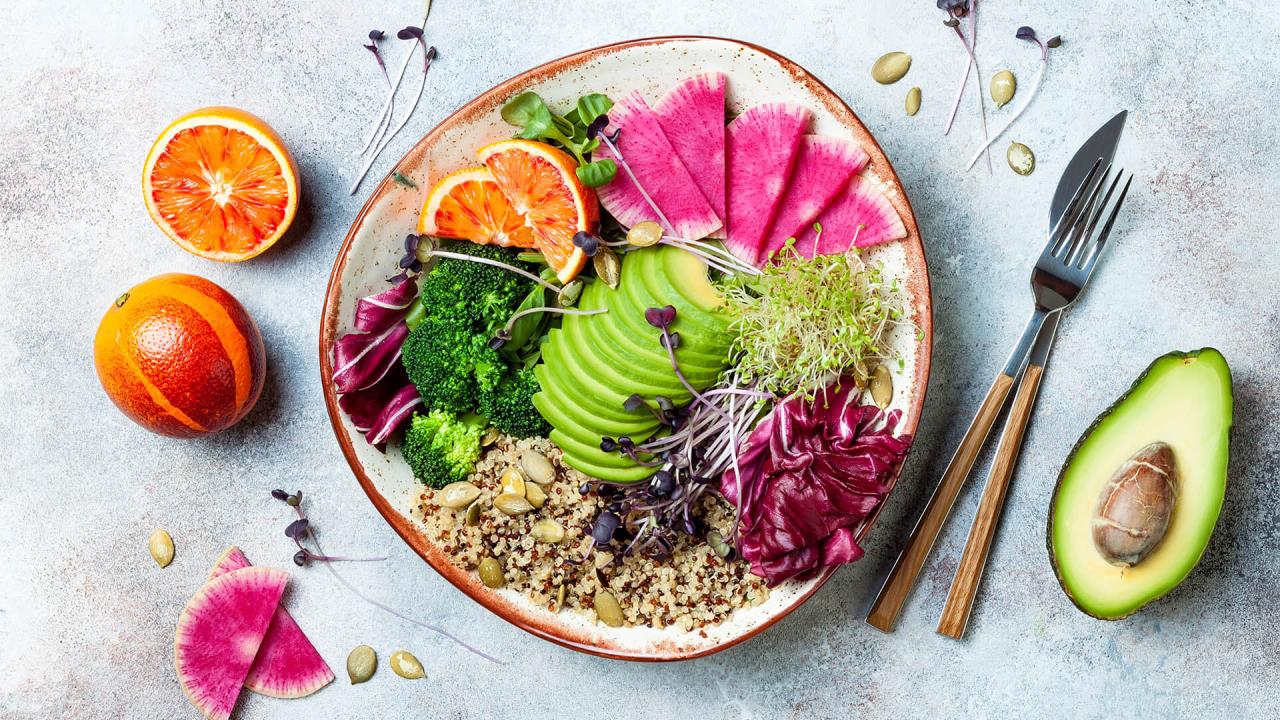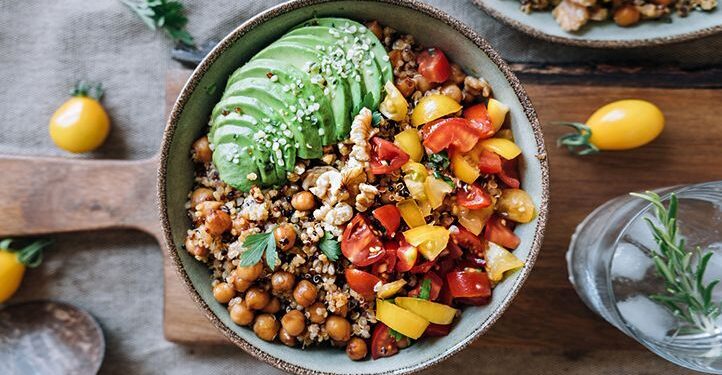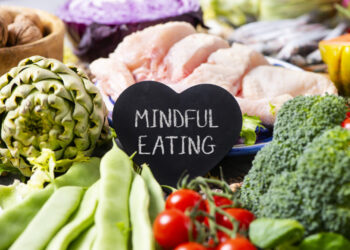The way we eat is a powerful choice that impacts not only our personal health but also the health of the entire planet. While the phrase “plant-based diet” may once have been associated with a niche lifestyle, it has now become a mainstream movement driven by a confluence of health, ethical, and environmental concerns. More than just a trend, a plant-based diet is a philosophy of eating that emphasizes foods derived from plants—fruits, vegetables, whole grains, nuts, seeds, and legumes—while limiting or completely avoiding animal products. This comprehensive guide will delve into the science-backed health benefits of this dietary approach, its profound environmental advantages, and practical, actionable steps to transition to a more plant-centric way of eating. We’ll explore how this shift is not about restriction but about abundance, opening up a world of new flavors and a path to a healthier, more sustainable future.
The Spectrum of Plant-Based Diets

The term “plant-based” is broad, encompassing a variety of eating patterns. It’s a spectrum, not a single, rigid diet, which allows individuals to find an approach that works best for them.
A. Vegan: This is the strictest form of a plant-based diet, eliminating all animal products, including meat, poultry, fish, dairy, and eggs. Many vegans also avoid other animal-derived products, such as honey and gelatin.
B. Vegetarian: Vegetarians do not eat meat, poultry, or fish, but they typically still consume some animal products like dairy and eggs. Within this category, there are variations:
* Lacto-ovo-vegetarian: Consumes dairy and eggs.
* Lacto-vegetarian: Consumes dairy but not eggs.
* Ovo-vegetarian: Consumes eggs but not dairy.
C. Flexitarian: This is a more flexible approach, where the diet is primarily plant-based but occasionally includes meat, poultry, or fish. It’s a popular choice for those who want to reap the benefits of a plant-based diet without a full commitment, focusing on reduction rather than elimination.
D. Whole Foods Plant-Based (WFPB): This approach focuses on eating whole, minimally processed plant foods and avoids refined sugars, white flour, and processed oils. It’s often considered the healthiest form of a plant-based diet.
E. Pescatarian: This diet includes fish and other seafood but excludes all other types of meat and poultry. It is often seen as a stepping stone to a fully plant-based diet.
The diversity of these options means that anyone can incorporate more plants into their diet, regardless of their current eating habits or lifestyle. The focus is on a gradual shift and a mindful increase in plant consumption.
The Unmistakable Health Benefits
The scientific evidence supporting the health benefits of a plant-based diet is overwhelming. Adopting a plant-centric way of eating has been linked to a reduced risk of a wide range of chronic diseases and can lead to a significant improvement in overall well-being.
A. Reduced Risk of Heart Disease: Plant-based diets are naturally low in saturated fat and cholesterol, which are major risk factors for heart disease. They are also rich in fiber, antioxidants, and anti-inflammatory compounds that promote cardiovascular health. Studies have shown that people who follow a plant-based diet have a lower risk of high blood pressure, high cholesterol, and heart disease.
B. Lowered Risk of Type 2 Diabetes: A diet rich in whole, plant-based foods, particularly whole grains and legumes, has been shown to improve insulin sensitivity and help regulate blood sugar levels. This can significantly reduce the risk of developing type 2 diabetes and can even help manage the condition in those who already have it.
C. A Healthier Gut Microbiome: The fiber from fruits, vegetables, and whole grains acts as a prebiotic, feeding the beneficial bacteria in our gut. A diverse and healthy gut microbiome is linked to improved digestion, enhanced immunity, and even better mental health through the gut-brain axis.
D. Effective Weight Management: Plant-based foods are often lower in calories and fat, but higher in fiber, which helps you feel full and satisfied for longer. This can lead to a natural reduction in calorie intake without the need for restrictive dieting, making weight management easier and more sustainable.
E. Reduced Risk of Certain Cancers: Numerous studies have linked a high consumption of fruits, vegetables, and whole grains with a reduced risk of certain types of cancer. The antioxidants and phytochemicals found in these foods help protect cells from damage and inflammation.
F. Enhanced Longevity and Vitality: By reducing the risk of chronic diseases and promoting a healthy body weight, a plant-based diet can contribute to a longer, healthier life. It’s not just about adding years to your life but adding life to your years.
The Environmental Power of Plant-Based Eating

Our food choices are not just a personal matter; they are a global one. The environmental impact of a plant-based diet is a compelling reason for many to make the switch. It’s a powerful way for individuals to contribute to a more sustainable future.
A. Reduced Greenhouse Gas Emissions: The livestock industry is a major contributor to greenhouse gas (GHG) emissions, particularly methane from cows and nitrous oxide from animal waste. By reducing our consumption of meat, we can significantly lower our personal carbon footprint.
B. Conservation of Water and Land Resources: Animal agriculture is incredibly resource-intensive. It requires a vast amount of land for grazing and growing crops for animal feed. By shifting to a plant-based diet, we can free up a significant portion of this land and reduce the massive amount of water used for farming and livestock.
C. Protection of Biodiversity: The expansion of agricultural land, driven largely by the demand for meat, is a leading cause of deforestation and habitat loss. By reducing this demand, we can help preserve natural ecosystems and protect the world’s biodiversity.
D. Reduced Water Pollution: Animal waste and fertilizer runoff from factory farms are major sources of water pollution, leading to the creation of “dead zones” in our oceans. A plant-based diet reduces this pollution by lowering the demand for animal products and large-scale, fertilizer-dependent farming.
E. Combating Food Waste: A plant-based diet often involves a greater reliance on whole, unprocessed foods, which can lead to a natural reduction in food waste from packaging and processing.
Practical Steps to Transition to a Plant-Based Diet
The idea of switching to a plant-based diet can feel daunting, but it doesn’t have to be. It’s a journey of exploration and discovery, not a sudden, restrictive change.
A. Start with “Meatless Mondays”: A simple and effective way to begin is by dedicating one day a week to a plant-based diet. This helps you discover new recipes and makes the transition feel manageable.
B. Focus on Addition, Not Subtraction: Instead of thinking about what you’re giving up, focus on what you can add to your plate. Experiment with new vegetables, fruits, whole grains, and legumes. Discover the incredible variety of plant-based foods available to you.
C. Explore Plant-Based Protein Sources: There are a plethora of delicious and satisfying plant-based protein sources. Try incorporating lentils, chickpeas, beans, tofu, tempeh, or a variety of nuts and seeds into your meals.
D. Learn to Cook with New Ingredients: The kitchen is your laboratory. Find plant-based recipes online or in cookbooks and start experimenting. Learning how to cook with plants is a fun and creative process that will open up a new world of flavors.
E. Find Plant-Based Swaps: The food industry has made it easier than ever to make plant-based swaps. Try plant-based milks (almond, oat, soy) in your coffee, plant-based burgers, or vegan cheese. These can help ease the transition without feeling deprived.
F. Educate Yourself: Watch documentaries, read articles, and listen to podcasts about the benefits of a plant-based diet. The more you learn, the more motivated you will be to make a lasting change.
G. Be Patient and Kind to Yourself: This is a journey, not a race. There will be slip-ups, and that’s okay. The key is to learn from them and to get back on track without judgment. The goal is to progress, not to achieve perfection.
The Future of A Plant-Based Revolution
The movement towards plant-based eating is not just a passing trend; it’s a fundamental shift in our food system. The future of food will be characterized by innovation, sustainability, and a greater emphasis on plant-based options.
First, cellular agriculture will become more mainstream, offering lab-grown meat that provides the taste and texture of traditional meat without the environmental or ethical costs.
Second, urban and vertical farming will grow in popularity, making fresh, local produce available year-round in cities, reducing the carbon footprint of transportation.
Third, plant-based product innovation will continue to accelerate. We will see new and creative plant-based alternatives to all kinds of animal products, making it easier than ever to follow a plant-based diet.
Finally, there will be a greater integration of personalized nutrition with plant-based diets. By analyzing a person’s unique genetic and microbial makeup, we will be able to provide highly specific plant-based dietary recommendations that are tailored to their individual needs, optimizing their health and well-being. The future of food is a collaborative effort, with technology, innovation, and conscious consumerism all playing a role in creating a more sustainable and equitable food system for all.
Conclusion
The power of a plant-based diet is a testament to the idea that our health and the health of the planet are inextricably linked. By shifting our focus from animal products to the incredible abundance of the plant kingdom, we can dramatically reduce our risk of chronic diseases, improve our overall vitality, and make a profound positive impact on the environment. This is not about deprivation or an all-or-nothing approach; it’s a journey of discovery and a celebration of the rich, diverse, and delicious world of plant-based foods.
Adopting a more plant-centric way of eating is one of the most powerful and personal choices we can make. It is a way to align our values with our actions, to be a part of a global movement towards a more sustainable future, and to invest in our own long-term health and well-being. The revolution in how we eat has already begun, and it is being led by a growing number of people who understand that a healthy life begins with a conscious choice. So, whether you start with “Meatless Mondays” or fully embrace a vegan lifestyle, every plant you add to your plate is a step towards a healthier you and a healthier planet. The future is plant-based, and it’s full of flavor.









Discussion about this post